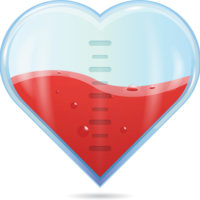Dear Neil: I’ve heard many people in recent years talk about bipolar disorder. They say that they have a child who is bipolar, or a husband, or a boss. I have never exactly understood what bipolar is. Can you explain what it means to be bipolar?
Thinking I Might Be in Kansas City
Dear Kansas City: The best description I’m aware of is the Bipolar Spectrum Diagnostic Scale, developed by Dr. Ronald Pies and refined by Dr. Nassir Ghaemi. I will reprint it below. If this description fits you, I would recommend you see a psychiatrist or a professional that specializes in mood disorders. Read through this entirely before filling in any blanks.
| Some individuals notice that their mood and/or energy levels shift drastically from time to time. | |
| These individuals notice that, at times, their mood and/or energy level is very low, and at other times, very high. | |
| During their ‘’low” phases, these individuals often feel a lack of energy; a need to stay in bed or get extra sleep; and little or no motivation to do things they need to do. | |
| They often put on weight during these periods. | |
| During their low phases, these individuals often feel ”blue”, sad all the time, or depressed. | |
| Sometimes, during these low phases, they feel hopeless or even suicidal. | |
| Their ability to function at work or socially is impaired. | |
| Typically, these low phases last for a few weeks, but sometimes they last only a few days. | |
| Individuals with this pattern may experience “normal” moods in between mood swings, where they function normally. | |
| They may then notice a marked shift or ”switch” in the way they feel. | |
| Their energy increases above what is normal, and they often get things done they would not ordinarily be able to do. | |
| Sometimes, during these “high” periods, these individuals feel as if they have too much energy or feel ”hyper”. | |
| Some individuals, during these high periods, may feel irritable, ‘’on edge” or aggressive. | |
| Some individuals, during these high periods, take on too many activities at once. | |
| During these high periods, some individuals may spend money in ways that cause them trouble. | |
| They may be more talkative, outgoing, or sexual during these periods. | |
| Sometimes their behavior during these high periods seems strange or annoying to others. | |
| Sometimes during the high periods, these individuals get into difficulty with co-workers or the police. | |
| Sometimes they increase their alcohol or non-prescription drug use during these high periods. |
Check one:
( ) This story fits me very well, or almost perfectly
( ) This story fits me fairly well
( ) This story fits me to some degree, but not in most respects
( ) This story does not really describe me at all
Now go back and put a check after each sentence that definitely describes you.
Scoring: each sentence checked is worth one point. Add 6 points if you also answered “fits me very well,” 4 points for “fits me fairly well,” and 2 points for “fits me to some degree.”
Total Score:
If your total score is 13 or above, you fit the diagnostic description of bipolar disorder.






